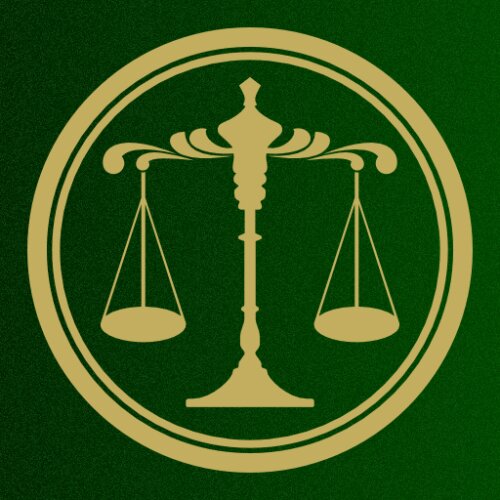Best Faith-Based Law Lawyers in Mielec
Share your needs with us, get contacted by law firms.
Free. Takes 2 min.
List of the best lawyers in Mielec, Poland
About Faith-Based Law in Mielec, Poland
Faith-Based Law, sometimes referred to as religious law, encompasses the legal principles and guidelines derived from religious traditions and practiced within religious communities. In Poland, a predominantly Catholic country, matters of Faith-Based Law often relate to religious marriage, divorce, inheritance, burial practices, and other areas governed by religious beliefs. In Mielec, a city located in the Subcarpathian region, there are active faith communities including Roman Catholic, Protestant, Jewish, and other groups. While the Polish legal system is fundamentally secular, Polish law recognizes and accommodates some aspects of faith-based norms, provided they do not contradict national law.
Why You May Need a Lawyer
There are several situations in Mielec where individuals and families may require legal expertise regarding Faith-Based Law. Some common circumstances include:
- Regulating Church weddings and their recognition by civil authorities
- Disputes concerning religious inheritance and succession rules
- Navigating divorce or annulment processes according to both civil and religious laws
- Questions about religious education for children post-separation
- Challenges involving the wearing of religious symbols or adhering to religious holidays in the workplace
- Burial disputes, especially interfaith or non-traditional burials
- Property disputes involving religious organizations
- Issues concerning the legal status of religious communities or their members
Legal assistance ensures protection of your rights while respecting both civil law and religious standards. A knowledgeable lawyer can also mediate between religious institutions and public bodies, helping translate religious requirements into civil legal language and vice versa.
Local Laws Overview
In Mielec, faith-based activities are subject to both national and local laws. Key legal points to understand include:
- Poland guarantees freedom of religion under Article 53 of the Constitution
- Churches and religious unions are recognized as legal entities and may own property or operate educational institutions
- Civil law regulates marriage, but Church weddings may be recognized legally if properly registered
- Religious education in public schools is permitted with parental consent
- Employment law offers some protections for religious practices, but must be balanced against employers' operational concerns
- Burial practices must conform to public health and municipal regulations, but religious rites are generally respected
- Disputes between individuals and religious organizations can be adjudicated by Polish courts, though internal religious matters may be exempt from state interference
Local Mielec authorities cooperate with religious organizations to facilitate observance of customs and holidays, provided these do not conflict with public order or Polish law.
Frequently Asked Questions
What is Faith-Based Law in Poland?
Faith-Based Law refers to rules and practices rooted in religious beliefs, observed by members of faith communities and sometimes recognized by the state in specific legal contexts.
Can a Church wedding be legally recognized in Mielec?
Yes, provided the marriage is registered with the civil authority after the Church ceremony in accordance with Polish law. Without registration, the marriage has only religious, not legal, validity.
What should I do if I want a religious divorce?
A religious divorce typically requires proceedings within your faith community. To legally end a marriage in Poland, you must also obtain a civil divorce through the courts, regardless of any religious dissolution.
Are religious holidays recognized by employers?
Polish law guarantees freedom of religion, and employees may request time off for religious observance. However, not all requests must be granted. It is recommended to discuss such matters with your employer in advance.
How are religious schools regulated?
Religious schools operate under both national education regulations and the oversight of the corresponding religious organizations. They must meet basic state education standards.
Can faith communities own property in Mielec?
Yes, registered churches and religious unions are considered legal entities and can acquire, own, or manage property in Mielec, subject to national and local regulations.
Will a will written according to religious tradition be honored?
For a will to be legally binding in Poland, including Mielec, it must comply with the requirements of Polish civil law. While religious customs may be considered, statutory rules take precedence in civil courts.
Can disputes within a religious community be resolved in court?
Civil courts may rule on property, contract, or other disputes involving religious organizations. However, doctrinal or purely internal religious matters usually remain outside state jurisdiction.
What are the rules regarding burial in line with religious tradition?
Polish law allows religious rites for burials, as long as all public health and cemetery regulations are respected. Interfaith or non-traditional burials might require special arrangements with local authorities.
Do children have the right to religious education in public schools?
Yes, religious education is available in public schools based on the demand and consent of parents or guardians. Opting in or out is voluntary.
Additional Resources
Individuals seeking legal help for Faith-Based Law issues in Mielec may benefit from contacting:
- The local parish or religious community offices for informal guidance and documentation
- The City of Mielec Legal Department for information about local regulations concerning religious matters
- The Polish Ministry of Justice for national legal information
- Registered legal aid organizations and notary offices in Mielec
- The Ombudsman for Human Rights, who can assist with cases involving potential religious discrimination
If you are a member of a specific religious community, your community leader may also be able to refer you to a lawyer familiar with both civil and religious law.
Next Steps
If you require legal assistance regarding Faith-Based Law in Mielec:
- Identify the specific issue you are facing and document all relevant details
- Gather any paperwork related to your case, such as marriage, divorce, inheritance, or property documents
- Consult your religious leader or community for initial advice, if comfortable
- Contact a qualified lawyer in Mielec with experience in both Polish civil law and faith-based matters
- Seek guidance from local or national legal aid resources if affordability is a concern
- Attend a consultation prepared with questions and materials so the lawyer can give you informed advice
Addressing Faith-Based Law issues often involves understanding both religious and civil legal systems. Expert legal assistance can ensure your interests are protected on both fronts and help you move forward with confidence.
Lawzana helps you find the best lawyers and law firms in Mielec through a curated and pre-screened list of qualified legal professionals. Our platform offers rankings and detailed profiles of attorneys and law firms, allowing you to compare based on practice areas, including Faith-Based Law, experience, and client feedback.
Each profile includes a description of the firm's areas of practice, client reviews, team members and partners, year of establishment, spoken languages, office locations, contact information, social media presence, and any published articles or resources. Most firms on our platform speak English and are experienced in both local and international legal matters.
Get a quote from top-rated law firms in Mielec, Poland — quickly, securely, and without unnecessary hassle.
Disclaimer:
The information provided on this page is for general informational purposes only and does not constitute legal advice. While we strive to ensure the accuracy and relevance of the content, legal information may change over time, and interpretations of the law can vary. You should always consult with a qualified legal professional for advice specific to your situation.
We disclaim all liability for actions taken or not taken based on the content of this page. If you believe any information is incorrect or outdated, please contact us, and we will review and update it where appropriate.












